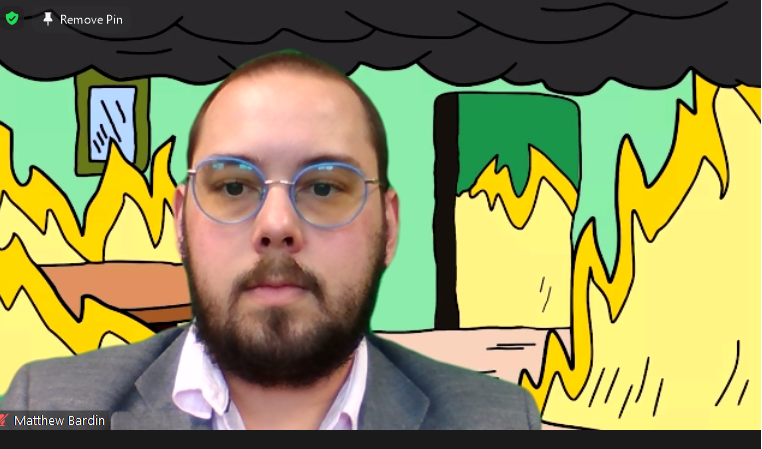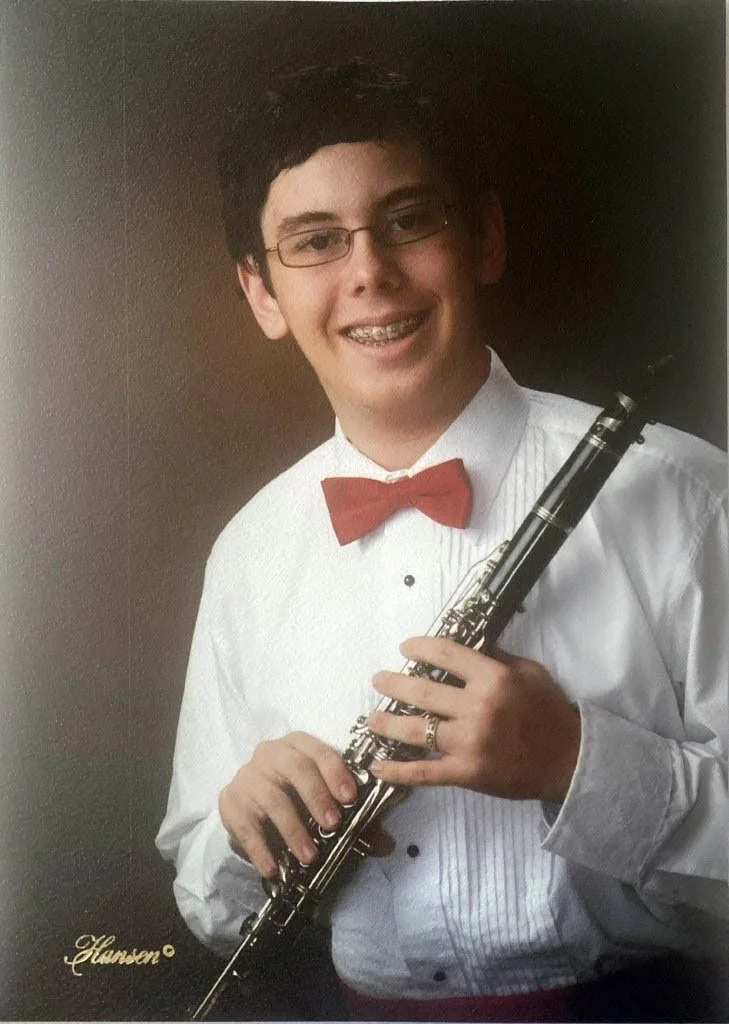Biographical Statement
Matthew Bardin, originally a native of Texas and Central Florida, is currently based in Raymond, MS, and has written music for large ensembles, chamber groups, voice, solo instruments, and electronics. He holds a Ph.D. in Experimental Music & Digital Media from Louisiana State University, a Master of Music from the Boston Conservatory at Berklee, and a Bachelor of Music from Stetson University. He is currently affiliated with the American Society of Composer, Authors, and Publishers. Matthew has presented his music at festivals both local and abroad, and served as the 2021 Composer in Residence of the University Presbyterian Church in Baton Rouge, LA. In 2022, he wrote the music, sound design, and ran live audio for the show Dream Logos at the Fringe festival in Edinburgh, Scotland.
As a composer, Matthew is interested in exploring new technologies and methods of expression. His current research explores ways to interact with the computer for music creation. He also is largely interested in cybernetic music performance.
Matthew has studied with Drs. Sydney Hodkinson, Eun Young Lee, Tina Tallon, and most recently, Drs. Jesse Allison, Edgar Berdhal, Stephen Beck, and Mara Gibson. Matthew’s current projects include multiple compositions utilizing the hardware from his dissertation: Cyberinet: Integrated, Semi-Modular Sensor Interface for Computer-Augmented Clarinet.
Starting in 2025, Matthew serves as the Instructor and Assistant Director of Music Industry at Hinds Community College in Raymond, Mississippi. He teaches multiple courses in the Music Industry program, as well as clarinet lessons for music minor students. He also directs the college Rock Band ensemble, provided live sound support at college events, and gives occasional master classes in music composition throughout the year.
For any more information, please reach out to Matthew directly at his CONTACT page. His full CV is available to download at the bottom of this page.
Matthew also has Type I Diabetes.
Teaching Philosophy
As a Music Educator, my goal is to not only provide students with the knowledge they need to succeed in the modern world, but to foster their creative growth as the next generation of artists. I have found great success in providing students with the necessary tools, then trusting them to further explore and find ways to apply that knowledge in a way that is relevant to each student individually.
Throughout a given semester, I have found my students respond well to a mixture of guided instructions and open exploration. I will go through a unit of a course, making sure to cover the necessary material, but make time a few times per semester to allow for students to lead the discussion. With no topic off-limits, we explore anything the students would like to cover. To keep things reasonable, I frame the activity in that it is a chance to review and expand on anything covered so far, or clarify any questions. The students responded positively to this because I was able to specifically answers their concerns, and since no students were required to ask questions in front of the class, all the questions were relevant and led to meaningful discussion of the course topics. Specifically, I have had the most success with this method in courses such as Audio Recording Techniques II at the University of Nebraska when we specifically reviewed recording instruments we hadn’t explored in several weeks just before the final.
In terms of course work, I set mine up to be largely project-based, with multiple medium-to-large scale projects throughout the semester. In these projects, I mainly grade on if the student has a technical understanding of the concepts, but also grade on creative effort. I don’t specify on what that looks like to the students, but encourage them to explore sounds they find interesting. In courses such as Electronic Music Production and Sound Design, it helps maintain student investment in the projects and create a wider variety of end results.
“There is no such thing as an empty space or an empty time. There is always something to see, something to hear. In fact, try as we may to make a silence, we cannot.”
Full CV.pdf file
















